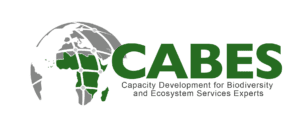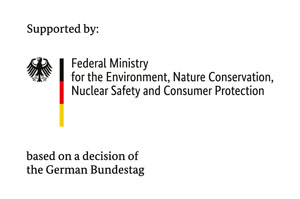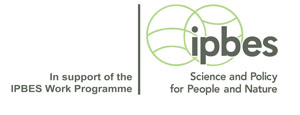Fostering Africa-IPBES Engagement: CABES and the roles of stakeholders in Central Africa

Africa is facing enormous challenges with regard to sustainable development in light of changing climate and the global biodiversity crisis1. A significant proportion of the African population depends on the direct provision of ecosystem services for their sustenance and livelihoods. To effectively address these challenges and ensure the sustainable use of biodiversity and ecosystem services, concerted efforts and the significant role of the Intergovernmental Science-Policy Platform on Biodiversity and Ecosystem Services (IPBES, www.ipbes.net) have been emphasised.
IPBES has produced a number of products (assessments) with policy recommendations that serve as a framework to promote more sustainable and nature-friendly policies. Such policies, however, have to be adopted and implemented at the national level. Despite widespread expertise and political will to mainstream biodiversity conservation into domestic policies in Africa, concrete steps in that direction are often constrained by lack of cross-sectoral collaboration and limited knowledge and understanding of the relevance of biodiversity and ecosystem services (BES) for human wellbeing. Hence, the need for the exploration of a science-policy-practice interface to narrow disciplinary divide and foster cross-sectoral collaboration.
Central Africa is significant for biodiversity and ecological balances conservation at the global level. The subregion is home to a variety of biodiversity hotspots and the Congo Basin Forest, the second tropical massif and the first tropical carbon sink of the planet. However, despite the key role the region has to play in global climate and biodiversity negotiations, the weak participation of experts from Central Africa in IPBES processes is notable. In addition, three among the nine countries (with Angola included) of the subregion are still not members of IPBES.
CABES supports capacity building in 8 countries in Central Africa, including Cameroon, Central African Republic, Chad, Congo, the Democratic Republic of Congo (DRC), Gabon, Equatorial Guinea, and São Tomé & Príncipe. As part of the programme, the Central Africa subregion is expanded to include Angola, Malawi, Zambia and Zimbabwe. In addition to the Central Africa subregional Biodiversity and Ecosystem Services (BES) Platform encompassing the afore-mentioned 12 countries, CABES is supporting the establishment/enhancement of National multi stakeholder BES platforms at the national level in Gabon and DRC.
CABES organised its first Central Africa stakeholder workshop on September 8, 2022, with the aim of introducing the CABES Programme, its Subregional Science-Policy-Practitioner Interface (SPPIs), and discussing the role of stakeholders in the implementation in the subregion. The event held online, gathered together CABES team members and 29 participants, from 11 countries. As part of the workshop, series of presentations were delivered by CABES team members, and followed by opportunities for exchanges amongst participants.



